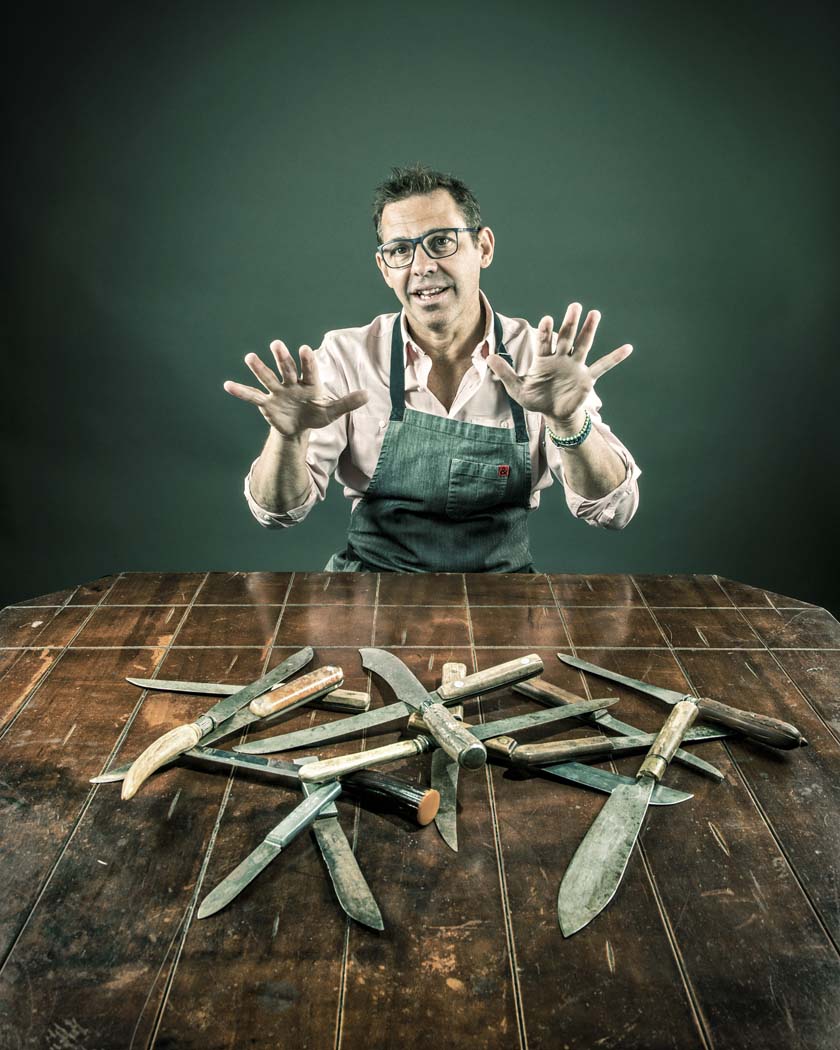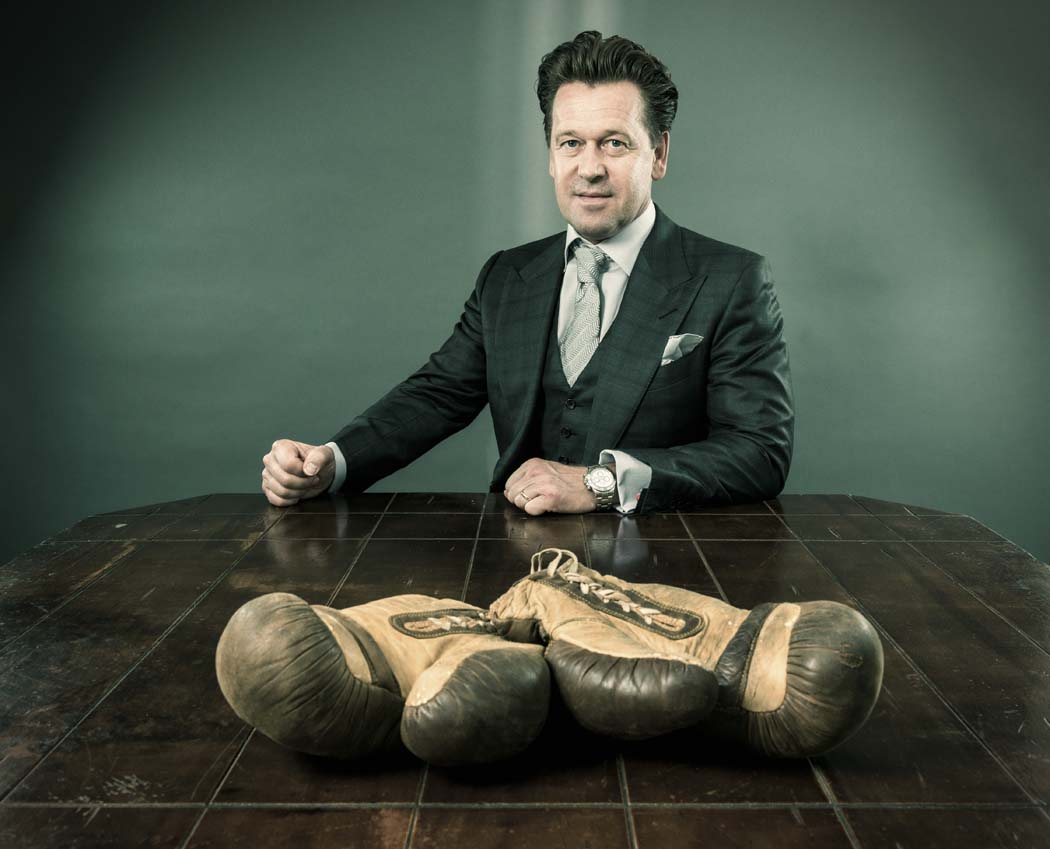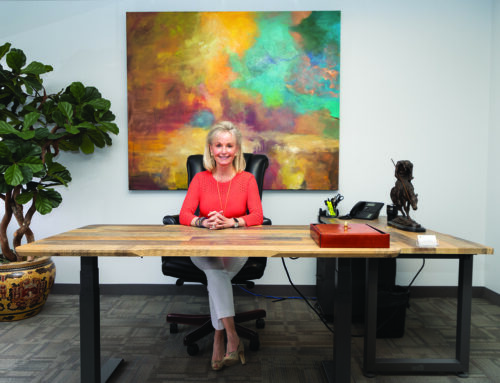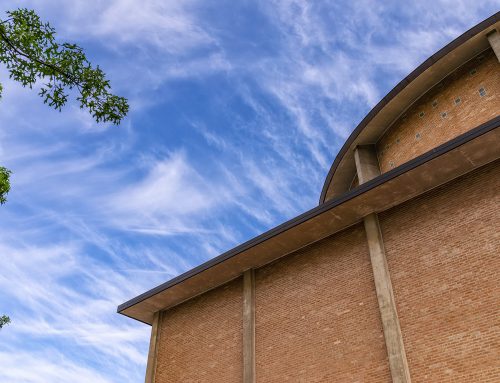Running the gamut from voyeuristic trash to societal edification, reality TV shows have amassed over the past 15 years like old newspapers on an episode of “Hoarders.” The grand paradox of the so-called “reality” genre is its supremely contrived, controlled and cut-up content, which — while necessary for palatable programming — deprives us of those stories beneath the surface. We tracked down Preston Hollow people who have spent time on reality TV show sets. They share candidly about their experiences, what they learned and life after the cameras shut off.
Incendiary Chef

Celebrity chef John Tesar describes his fare as “stylish, modern American cuisine prepared with classic European techniques.” His work has received nods from The New York Times and Esquire and he has been featured on multiple television shows including “Top Chef.” Photo by Danny Fulgencio
John Tesar earned the title of “The Most Hated Chef in Dallas” in a 2011 D Magazine piece, which cited rumors of the fiery tantrums he threw while working at The Rosewood Mansion. More recently, the chef has been engaged in a very public dispute with Leslie Brenner of The Dallas Morning News. Their feud culminated July 17 of last year, when Tesar Tweeted, “@lesbren [expletive] you! Your reviews are misleading poorly written,self serving and you have destroyed the star system and you really suck [sic].” He was unhappy with her write-up of his steak house, Knife. To this day he harbors a degree of resentment.
“I don’t think all her motivations are evil or unethical,” he says. “But, in acts of desperation, she’s gone to the dark side from time to time … Leslie seems to be the only one who doesn’t get John Tesar.”
Tesar’s unapologetic bluntness makes for great reality TV. He’s a regular on myriad Food Network shows and was a contestant on Bravo’s “Top Chef.” The latter gig was difficult to come by. Tesar tried out for the series several times, but kept getting rejected.
“I auditioned for season one, but they considered me to be too qualified at that time,” he says. “As the seasons went by, they decided they needed more talent, better chefs.”
He eventually secured a spot on season 10, which was filmed in Seattle. Tesar found the setting invigorating. Being near Puget Sound inspired him to open a seafood restaurant in our neighborhood upon his return. Spoon closed late last year, but it had a good run, garnering positive reviews from a slew of media outlets and a nod from the James Beard Foundation. Tesar still considers the restaurant one of his greatest achievements as a chef.
“I’d love to reopen Spoon, but I’m worried whether Dallas would support it seven days a week, because it didn’t in Preston Center,” he says. “Seafood is still not mainstream here. That’s something we’re going to have to wait for.”
These days Tesar spends time with his wife and their son. He plans to open an Italian restaurant on Turtle Creek in the next few months and is “putting together a team to push John Tesar forward, not only as a chef, but as a brand.” He remains largely unshaken by the gossip surrounding his made-for-TV life. No matter how loud the chatter gets, he refuses to stop being himself.
“I’ve had my own issues with growth,” he admits. “I’m glad people have paid attention to my shortcomings and watched me overcome them.”
Bosom Buddies

Heidi Dillon founded The Fashionistas, a fashion-driven philanthropic organization, and was later cast in Big Rich Texas, a reality television show. Once a finalist for the Miss USA pageant, LeeAnne Locken, Dilllon’s friend, has worked as a model and actress and was also cast for Big Rich Texas. Photo by Danny Fulgencio
Reality TV thrives on conflict, so it’s something of a miracle that Heidi Dillon and LeeAnne Locken’s friendship survived season two of “Big Rich Texas,” a show that seemingly encouraged cattiness between Dallas socialites. Both women had generally terrible experiences with the other cast members. Dillon recounts the time Bonnie Blossum made a scene at a party she was hosting.
“She stormed in, took a cheese platter and flung it at everyone,” Dillon says. “I enjoyed the process of production and liked the producers and crew who I worked with – the other cast members, not so much. Except for Connie [Dieb]. We’ve been friends for 15 years. No shade on Connie.”
Locken agrees that many of the “Big Rich Texas” women were less than pleasant.
“I couldn’t get off that show fast enough,” she says. “I would never do reality again with that group of women.”
Dillon and Locken are close. They talk on the phone at least once a week and dine together regularly. Perhaps their relationship is healthy because it didn’t begin on TV. They met long before “Big Rich Texas” aired, through their involvement with The Fashionistas, a Dallas-based nonprofit that supports up-and-coming designers. The ladies are no strangers to the entertainment industry. Dillon is a partner at Morning Dew Pictures, the production company behind Bravo’s first season of “The Real Housewives of Miami.” Locken, who lives in our neighborhood, works as an actress and appeared on the 2009 iteration of “She’s Got the Look,” a televised modeling competition for women over 35.
“I literally called ‘She’s Got the Look’ my torture show,” she says. “This is where I learned that what reality TV really is all about is torturing you. Because when they torture you and give you alcohol, they get the best footage they could possibly get — that’s the recipe for ‘train wreck.’”
Despite their traumatic experiences, the women are rumored to be working on a new series together. Some media outlets suspect they’re cast members on “Ladies of Dallas,” Bravo’s soon-to-be released show about wealth and scandal in our city.
“I cannot confirm nor deny if I am a part of it,” Locken says. “But I can say that I’m happy and excited. Reality is good for Texas and I’m so glad that Bravo has decided to do another show here.”
When it comes to “Ladies of Dallas,” Dillon is similarly evasive. She doesn’t mention the show by name, but says, “There’s some nonzero probability that you will see me in front of the camera again soon.“
So rational minds have to ask: Why do they continue to subject themselves to the drama? Locken views reality TV as a vehicle for inspiring others. She’s very immersed in the local charity scene and hopes to encourage others to get off the couch and volunteer.
“Everyday is an opportunity,” she says. “You get a choice: waste it or do something with it. “
As for Dillon? She admits she enjoys the attention. But her decision to be on camera is about so much more than ego.
“I think that it’s sort of satisfying to get that voyeuristic thing and look into somebody else’s life — see somebody misbehaving and then redeeming themselves,” Dillon says. “That’s really the story of all of our lives. Life is a series of triumphs and tragedies, falling down and redemption. We’re always on this pendulum swinging. “
Video: Behind the scenes look at the Advocate’s cover photo shoot
American Dreamer

Arnie Verbeek, who hails from the Netherlands, fell in love with boxing when he saw Muhammad Ali defeat George Foreman in 1974. Verbeek moved to the United States and started Maple St Boxing in 2008. His efforts were highlighted in The Undercard, a reality television show about ascending boxers. Photo by Danny Fulgencio
Walk into Maple Avenue Boxing Gym and you’ll get a history lesson with your workout. Preston Hollow resident Arnie Verbeek, who owns the training facility, has plastered its walls with ephemera from his favorite fights. He’s particularly fond of a 1974 poster of George Foreman and Muhammad Ali. And for good reason. The now-historic boxing match, widely referred to as “The Rumble in the Jungle,” changed the course of his life.
At the time, Verbeek was 10 years old and living in Holland. His father shook him awake to watch the fight on TV and through sleepy eyes he saw Ali take down a man who dwarfed him in size. It was inspiring in a David and Goliath kind of way, and Verbeek was spellbound. He knew instantly he wanted to move to America.
“I knew where I wanted to live and I knew I wanted to do something in boxing,” he remembers. “I wanted to be part of that world. It seemed to me there was so much happiness and sadness in one frame. It looked like that was really life on steroids.”
The story garnered Verbeek a spot in the 2013 HBO documentary series “Sport in America: Our Defining Stories.” A friend told him the network was looking for people whose lives were changed by American sports, so Verbeek filmed a 30 second video of himself, sent it off, and went about his business. His business, incidentally, is finance — the gym is just his passion project.
“I forgot about it,” he says. “A year later I got a call from HBO and they said, ‘We’re really interested in your story. Would you come to the studio in Austin and tell your story in person?’ So, I did, and they really loved it.”
That was the first time Verbeek appeared on a TV series, but it wasn’t the last. A year later, he and a man named Ray Quintanilla, who shares his love of boxing, started a reality show of their own called “The Undercard.” The 6-episode show, which follows boxers at Verbeek’s gym as they prepare for a major fight, aired in 2014 on Telemundo and The CW. The goal is to get his star pupils the exposure they need to find trustworthy promoters. “The Undercard” is not in production currently, but Verbeek hopes it will be soon.
“I want to get it back on some type of format because it’s fun for these kids,” he says. “They work a little harder when it’s on TV.”
Most everything Verbeek does is for “these kids.” Many of his boxers come from impoverished neighborhoods and have criminal records. He sees the sport as a way to turn their lives around.
Staring at the photos that line his office, Verbeek says, “If it weren’t for boxing, this guy and that guy would be dead. This is a last resort sport. This guy couldn’t be saved with golf or tennis. They’re not all going to make it [as boxers] but that’s okay, as long as they get structure out of it, discipline out of it. It’s more important that they show up on time, work hard and gain some structure.”






